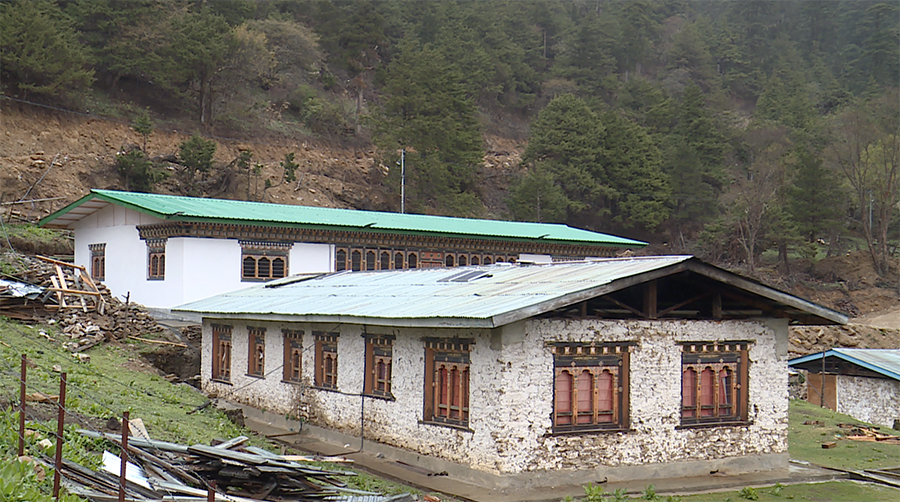
People of Naro Gewog in Thimphu will no longer have to worry about availing themselves of basic health services. The new primary health centre that was inaugurated yesterday brings much-needed healthcare services closer to the community. In addition, an arrangement has been made to deploy a female healthcare worker once every month to the Gewog. This is expected to ease the burden on the existing lone health worker in the gewog. The new health centre will benefit nearly 200 people in the gewog.
To address the shortage of health workers and provide continuous healthcare services, a female health worker from Kuzugchen Primary Health Centre in Kawang Gewog will visit the new primary health centre in Barshong for a week, every month. This arrangement is expected to ensure that the healthcare needs of Naro residents are met.
“We wanted to provide a permanent female health worker for Naro Gewog. But the population here is very less and currently, the country is facing a shortage of health workers. Therefore, we managed and decided to send the nearest primary health centre female health worker to Naro from the 10th to the 16th of every month,” said Kencho Wangdi, district health officer.
Considering the long distance between Naro Gewog and the capital town, residents are eagerly anticipating the enhanced facilities provided by the new health centre. With a two-hour drive from the town, the presence of the primary health centre brings convenience and accessibility to the people.
“In addition to a male health worker, we are very happy to have a female health worker now. This will help provide health services to the people when the other is on leave. Having a female health worker will benefit women in our community. When government provides such facilities in remote areas like ours, it gives us hope,” said Gyem Tshering, Naro Gup.
“Health officials sensitised on when and how to seek medical services and promote healthy practices. We are also happy to have an additional health worker which will definitely benefit the villagers here,” said Chador Namgay, a resident of Barshong.
“We belong to a very remote place and women were very hesitant to get checked up by the male health worker. The presence of a female health worker has particularly boosted confidence among women in the community, eliminating any hesitations in availing healthcare services,” said Tshering Yangki, another resident.
The previous primary health centre constructed in 2014, suffered partial damage during the 2021 earthquake, leaving it in a dilapidated state.
However, the newly reconstructed primary health centre costing more than Nu 5 M will provide a wide range of services including general check-ups, patient wards, antenatal care, emergency services and immunisations.
Namgay Dema
Edited by Sonam Pem








